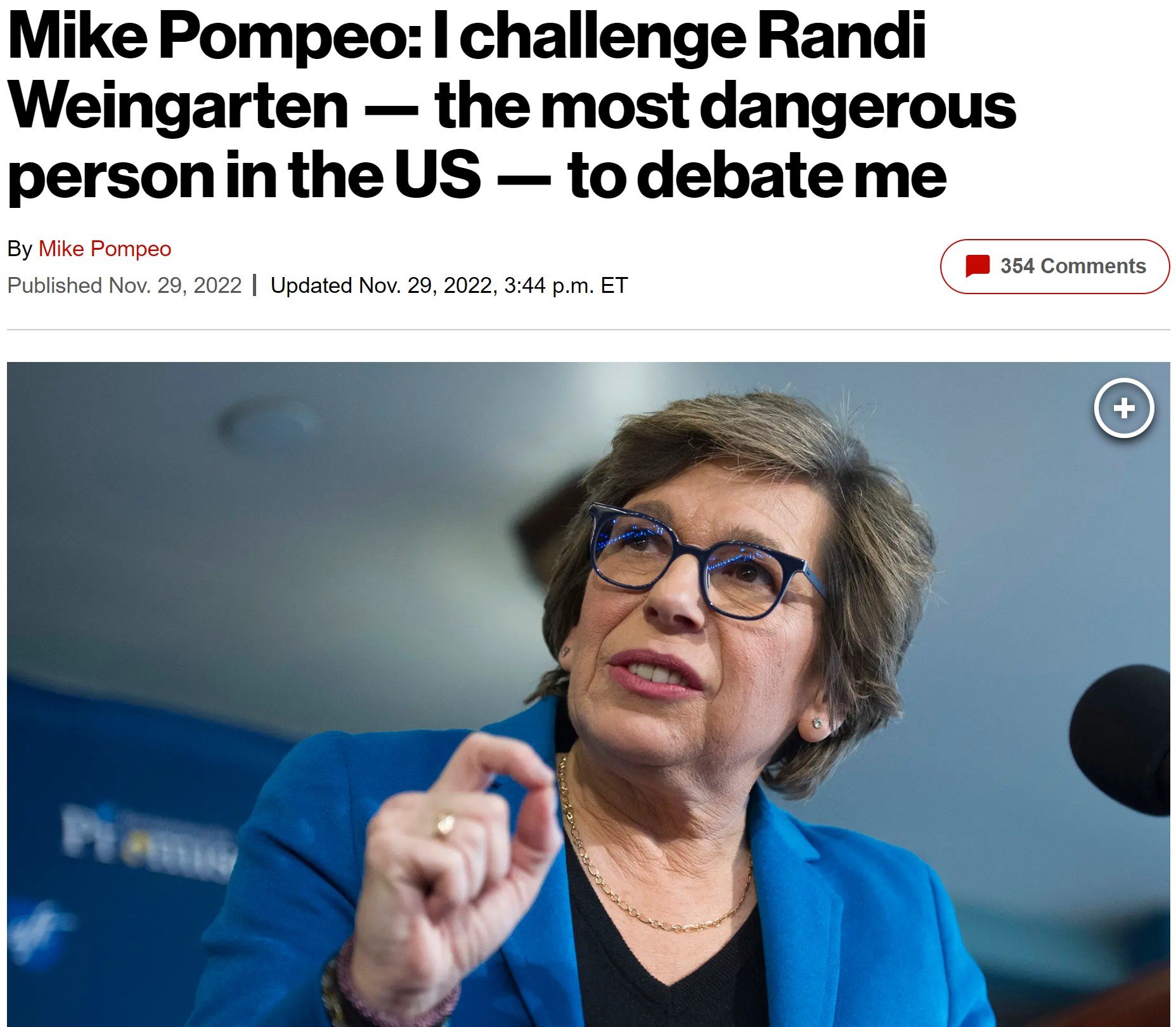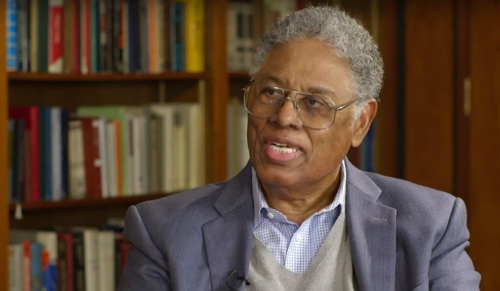Join the campaign fun now!
Union Power or Parent Voice? CFISD School Board Crossroads
Progressive Democrat candidates in school board races are increasingly backed by the American Federation of Teachers (AFT), raising fair and important questions about whose interests are truly at stake: the children and parents, or the powerful union’s own political agenda? This is not about attacking teachers—who are heroes in our communities—but about scrutinizing the union leadership and national organizations that have shown time and again a willingness to put their priorities ahead of students’ achievement and parental voice.

The Most Dangerous Person in the World
As former Secretary of State Mike Pompeo put it: “The most dangerous person in the world is Randi Weingarten… If you ask, ‘Who’s the most likely to take down the republic?’ It would be the teachers’ unions, and the filth that they’re teaching our kids, and the fact that they don’t know math and reading or writing”. The concern is not just about culture wars—it’s about the basic literacy and numeracy slipping in union-dominated districts, while union leaders wage political battles at the expense of educational fundamentals.

Union Takeover? CFISD Parents Sound Beware
Recent campaign events and social media posts from Cy-Fair Community Voices confirm that Guilmart, Camarena, and Lane “got to meet @aftunion President Randi Weingarten and spend time with our other friends in Labor,” and that these photos were proudly shared online as endorsements. Cy-Fair AFT’s own communications have announced enthusiastic support for this slate—an alliance that shows how union power is leveraged to steer the election.

Not Teachers—The Union Leadership
It is essential to clarify: opposition is not to teachers, who are often just as frustrated with the union’s heavy-handed tactics and politicization. Many dedicated educators wish for less bureaucracy and more partnership with parents and communities. However, AFT and its recent president, Randi Weingarten, have unapologetically wielded their national platform to push partisan politics into local classrooms and elections.
Randi Weingarten likens parental rights advocates to segregationists

Teachers’ Unions Think They Own Your Kids
Teachers unions claim authority over education funding and seek control over the values taught to nearly 50 million students. Their strong opposition to school choice signals an agenda for centralized influence, even though the Supreme Court affirms parents' rights to direct their children’s upbringing. This pursuit of power directly challenges parental liberty and educational freedom. Does the Texas American Federation of Teachers (AFT) feel this way? How do the factor into the current CFISD Election?
Union-Backed Candidates and Parental Priorities
AFT’s support is overwhelmingly directed toward progressive candidates who adopt the union’s platform of resisting meaningful education and accountability reforms—often at the expense of true parental engagement and proven academic metrics. The union publicly urges its base: “Head to vote.texasaft.org for information…as well as a list of Texas AFT COPE’s current endorsements,” highlighting their deep involvement in promoting a particular slate of candidates.
This union-dominated approach regularly conflicts with the desires of parents who want basics like reading, writing, and math prioritized over ideological or bureaucratic interests. For instance, school board decisions in states like Oregon and New York—strongholds for union political power—have recently gutted graduation standards, clearly signaling that union-backed agendas can override basic academic expectations. These moves, touted as “equity,” result in lowering the educational bar for all students and sideline parents’ input.

The Price of Protected Employment: Declining Student Performance
"So long as public schools are treated as places that exist to provide guaranteed jobs to members of the teachers’ unions, do not be surprised to see American students continuing to score lower on international tests than students in countries that spend a lot less per pupil than we do."

Unions vs. Students: The “Monopoly” Problem
Teachers’ unions, particularly the AFT, have fought hard against policies that put students and families in the driver’s seat—especially when it comes to school choice. According to independent analysis, “choice threatens an entrenched special interest when it comes to
K-12 education. And that special interest fights as hard as possible to keep children’s education dollars regardless of whether they meet the needs of families”. The unions argue that any increase in choice “defunds” schools, but this only reveals their real fear: that parents and students will walk away from underperforming, union-dominated institutions for better opportunities elsewhere, damaging the union’s power base.
Unions themselves admit their first priority is increased spending and higher salaries for educators, which requires electing sympathetic school board members. While supporting professional compensation is worthwhile, too often these campaigns conflate teacher well-being with union clout, sidelining reforms that would benefit students or promote transparency and accountability.
Call to Action
CFISD voters are encouraged to ask themselves: when Leslie Guilmart, Kendra Camarena, and Cleveland Lane are photographed with and endorsed by the highest levels of union leadership, are they likely to put families’ priorities first, or those of an interest group with a record of opposing school choice, lowering standards, and prioritizing its own power? Local children deserve school board members who answer to parents and students—not Washington, D.C.-based union bosses.
Stand up for true parental voice and student-first leadership. If concerned about special interests shaping local schools, make your vote count for candidates who answer to families—not powerful union bosses. Stay vigilant, do your homework, and choose school board members who put children and parents before union politics.